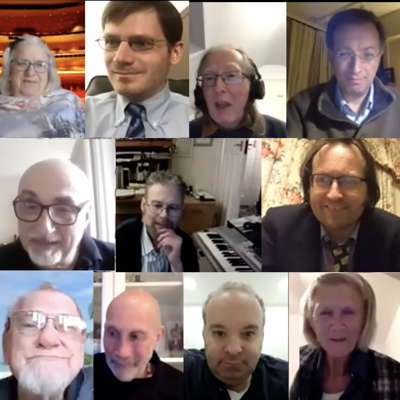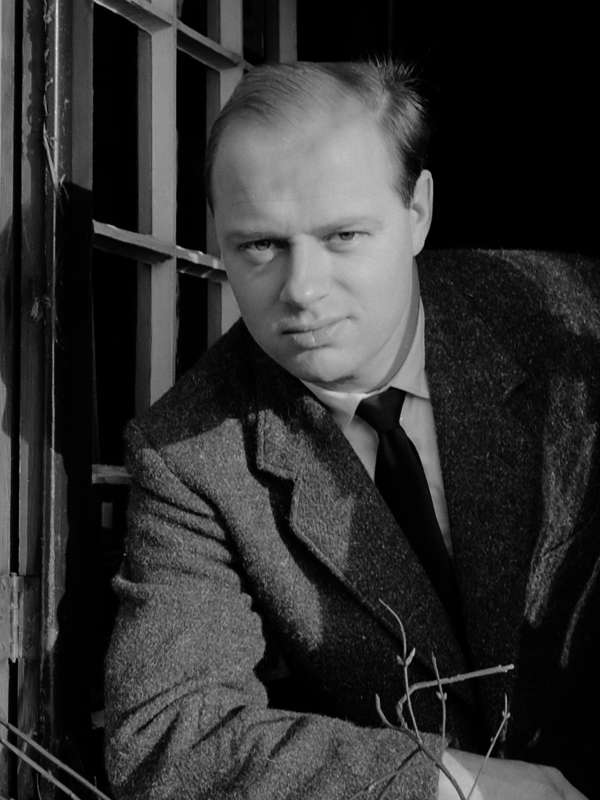 DISCUSSION: John Dante Prevedini leads a discussion about Composers, individuals or collective?, including contributions from David Arditti, Halida Dinova, Robert McCarney and Jane Stanley.
DISCUSSION: John Dante Prevedini leads a discussion about Composers, individuals or collective?, including contributions from David Arditti, Halida Dinova, Robert McCarney and Jane Stanley.
 VIDEO PODCAST: James Ross and Eric Fraad discuss Streaming, Downloads and CDs with Maria Nockin, Mary Mogil, David Arditti, Gerald Fenech, John Daleiden, John Dante Prevedini, Lucas Ball and Stephen Francis Vasta.
VIDEO PODCAST: James Ross and Eric Fraad discuss Streaming, Downloads and CDs with Maria Nockin, Mary Mogil, David Arditti, Gerald Fenech, John Daleiden, John Dante Prevedini, Lucas Ball and Stephen Francis Vasta.
- Wagner: Tristan and Isolde
- New York Metropolitan Opera
- Johann Wenzel Anton Stamitz
- Robert Weisz
- Robert Wilson
- sacred music
- Hansung Yoo
- Bobbi J Nicotera
Bernard Haitink
Dutch conductor and violinist Bernard Haitink was born in Amsterdam on 4 March 1929. He studied violin and conducting at the Conservatorium van Amsterdam and played violin in orchestras before taking Ferdinand Leitner's conducting courses in 1954 and 1955.
His first concert as conductor was with the Netherlands Radio Union Orchestra in 1954. He became the orchestra's second conductor in 1956, and in 1957 its chief conductor.

Bernard Haitink (1929-2021) in 1959. Photo: Herbert Behrens / Anefo
In 1956 he first conducted the Concertgebouw Orchestra, substituting for Carlo Maria Giulini. Three years later, after Eduard van Beinum's sudden death, Haitink became first conductor of the Concertgebouw Orchestra, and in 1961 he shared the chief conductor role with Eugen Jochum and then became sole principal conductor in 1963, touring widely with them and also making records on Philips and later Decca and EMI Classics. There were various political and administrative hassles, mostly connected with the Dutch government trying to cut budgets, in which he always took the side of his players, but he remained chief conductor until 1988, and the political games continued later, when he was honorary conductor and conductor laureate.
Meanwhile, from 1967 until 1979, he was principal conductor of the London Philharmonic Orchestra, and from 1978 until 1988 he was music director at Glyndebourne. From 1987 until 2002 he was music director at Covent Garden.
Haitink himself had always the trump card of resignation up his own sleeve; that he did not use it is tribute as much to his own integrity as to his indispensability. Perhaps his loyalty was always directed more to his musical colleagues than to the management, and even beyond them to the music he so eloquently performed. He will best know how magisterially he has grown as a conductor in the fifteen Covent Garden years; the evidence was before us in his Saturday Farewell on 13 July 2002. - Robert Anderson
Celebrated for his performances of Beethoven, Bruckner, Mahler and Wagner, Haitink also worked in the USA, as principal guest conductor of the Boston Symphony Orchestra (1995-2004) and became principal conductor of the Chicago Symphony Orchestra from 2006 until 2010, turning down an offer to be music director there because of his age.
He retired from conducting in 2019, giving a series of final concerts in The Netherlands, Switzerland (where he had led masterclasses for young conductors for several years) and the UK. In 2019 his collaborative book Conducting is a Mystery with Peter Hagmann and Erich Singer was published by Bärenreiter.
Bernard Haitink died on 21 October 2021 at his home in West London, UK, aged ninety-two.
A selection of articles about Bernard Haitink
Classical music news. Edo de Waart - The Dutch conductor retires at eighty-two
Spotlight. Incandescent Music-making - Gerald Fenech urges you not to miss Haitink's recordings of Bruckner's Te Deum and Eighth Symphony. 'Awesome in every way.'
Classical music news - October and November 2021 Obituaries - Our summary of those the classical music world has lost this and last month
Classical music news. November 2021 Newsletter - Watch and listen to our November 2021 newsletter
CD Spotlight. Greatest of Pleasure - Tchaikovsky and Mahler from Goldstone and Haitink, heard by Bill Newman. '... moving in the extreme.'
CD Spotlight. Transcendent Resignation - Mahler's Ninth Symphony, heard by David Wilkins. '... played with love and knowledge and commitment ...'
CD Spotlight. Invigoratingly Natural - Van Beinum conducts Mahler, recommended by Howard Smith. '... a tad less frenetic ...'
Ensemble. Full Circle - The Royal Concertgebouw Orchestra opens Musikfest Berlin, reviewed by Ciaran McAuley
Ensemble. Haitink's Beethoven - Malcolm Miller was at the second of three April concerts at London's Barbican Hall
Ensemble. A much loved conductor - Bernard Haitink's Farewell Concert at London's Royal Opera, as experienced by Robert Anderson

